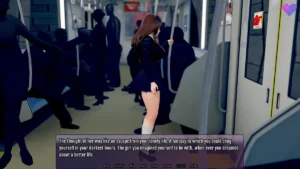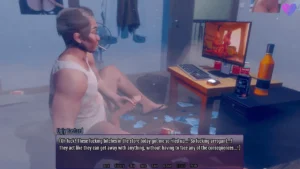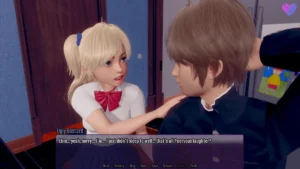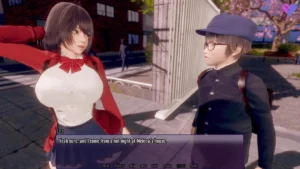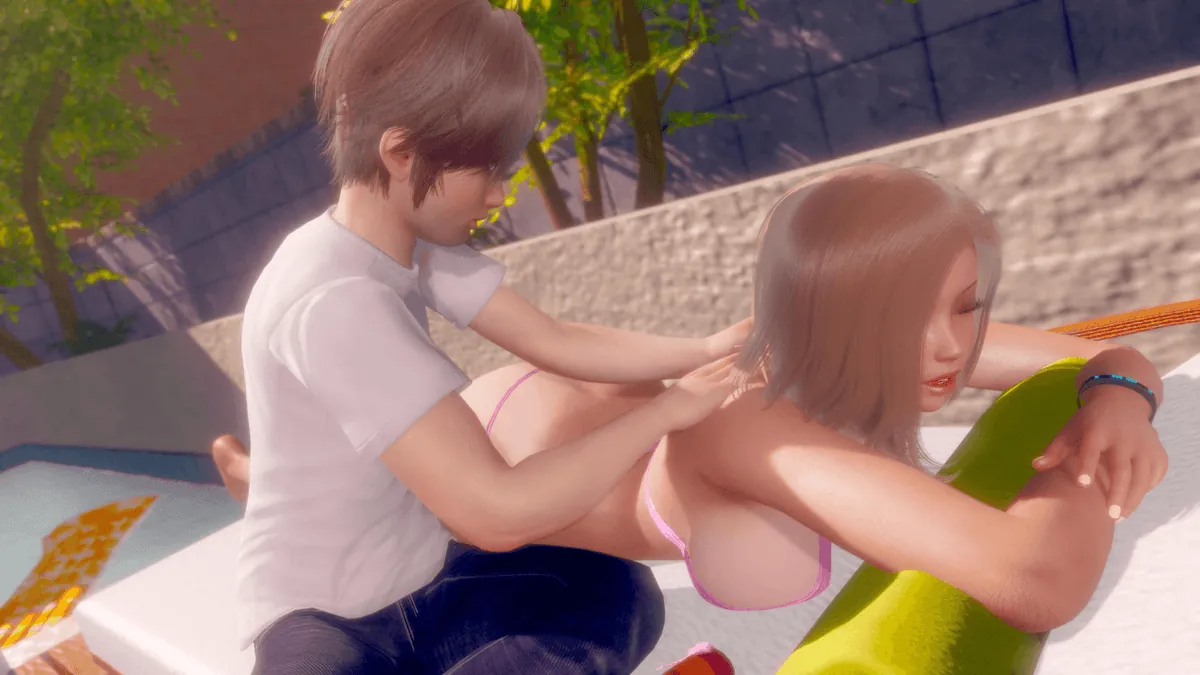
Twisted Memories
Play Twisted Memories
Twisted Memories review
Explore the storyline, gameplay mechanics, and character development in this adult visual novel
Twisted Memories stands out as a unique adult visual novel that combines time-travel mechanics with complex character narratives. This game follows an unconventional protagonist whose mind travels back through time, creating opportunities for relationship building and story branching. Whether you’re curious about the gameplay mechanics, character interactions, or the overall narrative structure, this guide provides an in-depth look at what makes Twisted Memories a distinctive entry in the visual novel genre. Understanding the game’s core mechanics and story elements will help you appreciate its design philosophy and narrative approach.
Understanding the Core Narrative and Protagonist
The Time-Travel Premise and Story Setup
Let me tell you about a game that completely redefined what I expect from a visual novel branching storyline. I still remember my first evening with Twisted Memories—I was expecting a typical romance, but what I got was a narrative punch to the gut that had me questioning my own moral compass for days. 🤯 The Twisted Memories visual novel story isn’t just another tale; it’s a deeply personal, often uncomfortable, journey into the soul of a man given a cosmic do-over.
The premise is as brilliant as it is unsettling. You play as a man in his forties, disillusioned and burdened by a life of regrets. Through a mysterious event, his consciousness is suddenly thrown back in time, landing squarely in the body of his 18-year-old self. He wakes up with all the memories of his future failures and heartaches intact, while physically being a teenager again. This isn’t your standard time-travel narrative; it’s a full-on mind transfer, creating an immediate and powerful internal conflict. The time-travel narrative mechanics are the engine of the entire experience, forcing you to constantly reconcile the wisdom (and cynicism) of age with the impulsive energy of youth.
What makes this setup so compelling is the raw authenticity of the protagonist’s situation. He’s not a heroic chosen one; he’s a flawed, often selfish man who sees a golden ticket to rewrite his personal history. The game brilliantly uses this premise to explore themes we rarely see in games: midlife crisis, the burden of memory, and the terrifying question of whether we’d truly make better choices if given a second shot. The narrative doesn’t shy away from the psychological whiplash of this experience. Imagine knowing your future wife is sitting across from you in class, but you also remember every painful argument and moment of disconnect that led to your divorce. 😥 This creates a narrative tension that had me hooked from the very first decision.
Pro Tip: Pay close attention to the protagonist’s internal monologue during the early chapters. The way he describes his past life versus his new reality provides crucial insight into his deepest motivations and regrets, which will heavily influence your later choices.
The time-travel narrative mechanics are seamlessly woven into the gameplay. Your “future knowledge” acts as a guide, but it’s not infallible. Changing one small event can have cascading consequences you never anticipated, which is where the true narrative depth in adult games really shines. You’re not just picking dialogue options; you’re actively shaping reality based on memories of a timeline that is rapidly becoming obsolete.
Character Motivation and Psychological Depth
Now, let’s talk about what truly elevates the Twisted Memories visual novel story—the astonishingly well-crafted protagonist character development. This isn’t a blank slate for you to project yourself onto; he’s a fully realized character with a complex, and at times disturbing, psychological profile. His motivations are a tangled web of noble intentions, raw selfishness, and deep-seated emotional damage. 🕸️
The core of his drive stems from his relationships with his family. In his original timeline, he felt he failed them—as a son, a brother, and eventually as a husband and father. This regret fuels his initial actions, giving him a powerful, relatable goal. However, the game masterfully reveals that his motivations are far more complex than simple altruism. There’s a simmering anger there, a desire not just to fix things, but to control them, to ensure he never feels the powerlessness of his first life again. This exploration of character motivation and psychology is some of the most nuanced I’ve ever encountered in the medium.
His approach to past relationships is particularly fascinating. He pursues his future wife not with the innocent passion of a teenager, but with the calculated precision of a man trying to reassemble a broken artifact. He knows her likes, her fears, and the exact moments their original relationship soured. This creates a bizarre power dynamic that the game never lets you forget. Is this love, or is it a form of emotional manipulation driven by nostalgia and fear? The game forces you to sit with this discomfort, making the protagonist character development feel earned and authentic.
What’s truly impressive is how the narrative justifies his often morally questionable behavior without ever excusing it. His knowledge of the future gives him a sense of entitlement, a belief that he deserves a better outcome. This is where the character motivation and psychology reaches its peak. He might do something cruel or selfish, rationalizing it with, “I know how this ends if I don’t,” forcing you, the player, to grapple with the ethics of his actions. Is it wrong to hurt someone now to prevent a greater hurt later? There are no easy answers here. 😮💨
The revenge subplot is a perfect example of this moral complexity. It’s not a simple, righteous quest. It’s messy, personal, and intertwined with his romantic pursuits. He might be trying to win back a loved one while simultaneously sabotaging a past rival, blurring the lines between healing old wounds and indulging in petty vengeance. This intertwining of dark and light themes is what gives the game its unique flavor and substantial narrative depth in adult games.
Narrative Branching and Player Agency
This is where Twisted Memories truly separates itself from the pack. The visual novel branching storyline isn’t an illusion; your choices carry genuine, often permanent, weight. The game features a sophisticated system where your decisions don’t just affect immediate reactions—they alter character perceptions, lock and unlock future story beats, and fundamentally change the protagonist’s relationships and even his core personality. 🎭
The player choice consequences are both immediate and long-term. A seemingly minor decision in Chapter 2, like how you handle a confrontation with a family member, can determine which major narrative paths are available to you in Chapter 6. The game tracks your behavior across several axes—are you acting with compassion or cynicism? Are you clinging to the past or embracing your new chance? Are you honest about your strange situation or manipulative? This system ensures that your version of the story feels uniquely yours.
I learned this the hard way during my first playthrough. I thought I was being “smart” by using my future knowledge to aggressively optimize outcomes, steamrolling over people’s feelings to achieve what I thought was the “best” ending. The game responded by giving me an ending where the protagonist got everything he thought he wanted, but was left isolated and empty, having failed to understand the true cost of his actions. The player choice consequences in this game are a masterclass in thematic storytelling.
The different narrative paths are deeply tied to your relationships. You can pursue a route focused on reconciliation with your family, a path dedicated to “perfecting” your romance with your future wife, or even a more destructive route where you abandon your past entirely for new, unpredictable relationships. Each path offers a completely different perspective on the protagonist’s journey and results in significant protagonist character development.
To help you visualize the scope of your choices, here’s a breakdown of the major narrative routes and their outcomes:
| Primary Route Focus | Key Player Choices Required | Narrative Outcome & Protagonist Arc |
|---|---|---|
| The Redeemer Path | Prioritize family interactions, choose compassionate dialogue, avoid manipulative tactics. | The protagonist finds peace by mending past familial wounds, learning that connection is more important than control. Ends with a sense of hard-won contentment. |
| The Perfect Romance Path | Meticulously recreate “perfect” moments from the original timeline, be highly protective, use future knowledge extensively. | He succeeds in creating an “ideal” relationship but often becomes possessive and anxious. The ending is bittersweet, questioning the authenticity of a pre-planned love. |
| The New Beginning Path | Deliberately break from the past, pursue new love interests, make choices divergent from original memories. | This path offers the most freedom and surprise but is fraught with guilt and the fear of the unknown. The protagonist develops into a more independent but lonelier figure. |
| The Vengeance Path | Focus on righting past wrongs and undermining rivals, often choosing aggressive or cynical options. | A dark arc where the protagonist becomes consumed by his grudges. He may achieve his goals but at the cost of his humanity, leading to a powerful but tragic conclusion. |
The beauty of this system is that your journey is never a pure archetype. You might start on a Redeemer path but get pulled into moments of Vengeance, creating a beautifully flawed and human story. The relationships evolve organically based on hundreds of small decisions, not just a few key moments. A character’s trust isn’t a meter you fill; it’s a fragile thing that can be shattered by a pattern of behavior, making the visual novel branching storyline feel incredibly responsive and real. 👏
Ultimately, the Twisted Memories visual novel story is a powerful exploration of memory, regret, and the choices that define us. Its sophisticated time-travel narrative mechanics and profound focus on character motivation and psychology create an experience that stays with you long after the credits roll. It demonstrates the incredible narrative depth in adult games, proving that the medium can tackle complex, mature themes with grace and intelligence. Your choices matter, the player choice consequences are meaningful, and the resulting protagonist character development is some of the most compelling you will ever guide. It’s more than a game; it’s a conversation with your own what-ifs.
Twisted Memories presents a distinctive take on the visual novel genre by combining time-travel mechanics with mature storytelling and complex character relationships. The game’s strength lies in its willingness to explore morally ambiguous characters and justify their motivations through narrative depth rather than simple morality. From its core premise of a protagonist experiencing a second chance in the past to its branching relationship systems and character-driven storytelling, the game offers multiple layers of engagement for players interested in narrative-focused experiences. The combination of gameplay mechanics, visual presentation, and character development creates an experience that appeals to fans of adult visual novels who value story substance alongside other elements. Whether you’re drawn to the time-travel narrative, the relationship mechanics, or the character interactions, Twisted Memories delivers a complete package that demonstrates how adult games can incorporate meaningful storytelling and player agency. Understanding these elements helps appreciate the game’s design philosophy and what sets it apart in the visual novel landscape.


